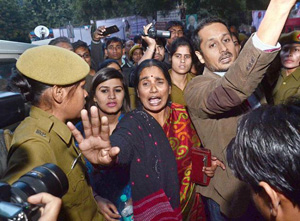New Delhi, Dec 22: The Rajya Sabha on Tuesday took up for discussion the Juvenile Justice amendment bill, a day after members cutting across party lines agreed that the important legislation should be taken up immediately.
The Juvenile Justice (Care and Protection of Children) Bill, 2014, provides for the trial of those between 16-18 years as adults for heinous offences. Also, anyone between the age of 16-18 who commits a less serious offence may be tried as an adult if he is apprehended after he attains the age of 21.
Giving out the bill's details, Women and Child Development Minister Maneka Gandhi said borstals -- a custodial institution for young offenders -- would be set up under the proposed law to house juveniles accused of heinous crime.
"They (juvenile convicts) will not stay with adults in jails meant for adults... They will be kept in borstals. It does not exist at present... it will be created," the minister said.
The convicted juvenile will stay in borstals till they attain the age of 21, and will be evaluated to decide whether they should be released.
"There will be a review... if they still have a criminal bent of mind, they will serve the complete sentence," said the minister.
Maneka Gandhi said juvenile crime was being encouraged by the existing law.
"Juveniles' involvement in crime is increasing the fastest. Children walk into police stations and say we have murdered... send us to a juvenile home," the minister said.
Pointing out that even children committed crime against other children, she wondered: "Are we going to protect the victim or the criminal?"
"It (the bill) will stop a 16-year-old from saying 'I have burnt a jhuggi. Send me to juvenile justice (board)'. 'Or I have raped, murdered, send me to JJ...'," Maneka Gandhi said.







Comments
Add new comment